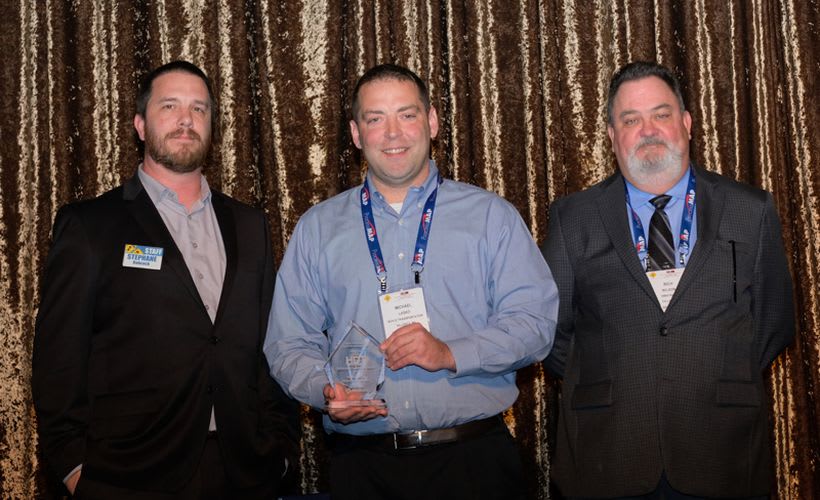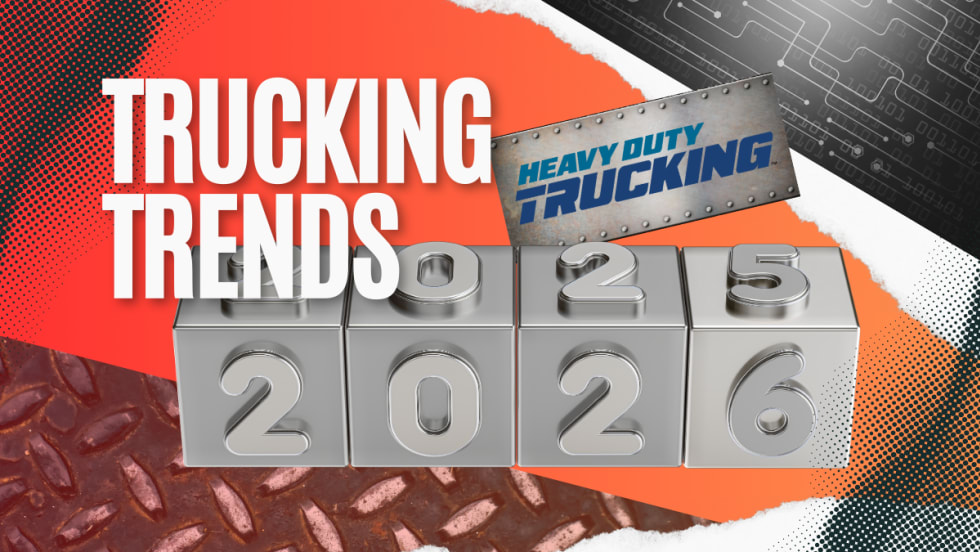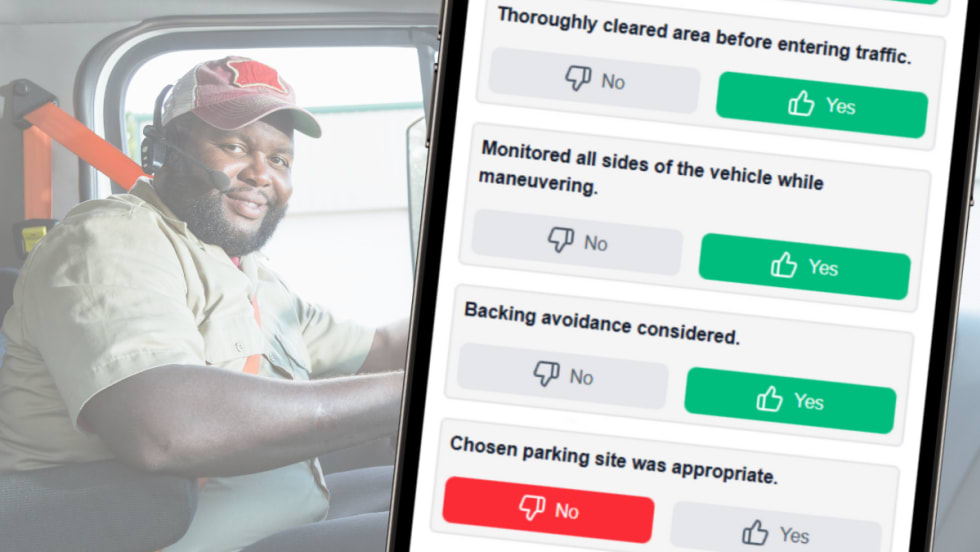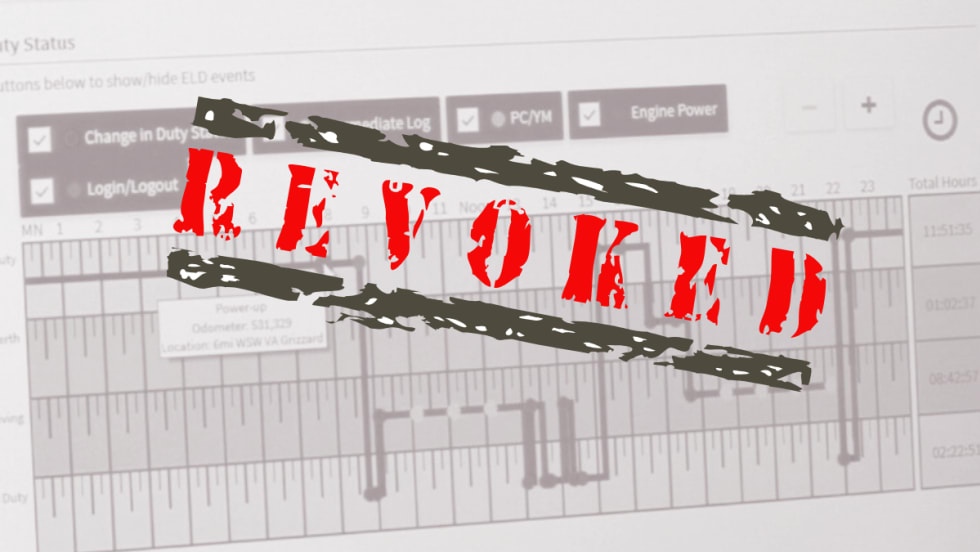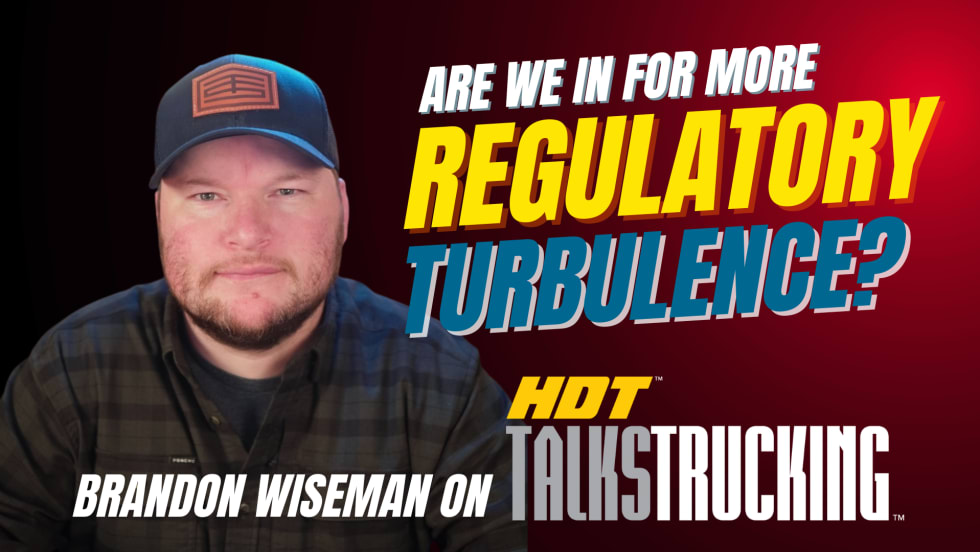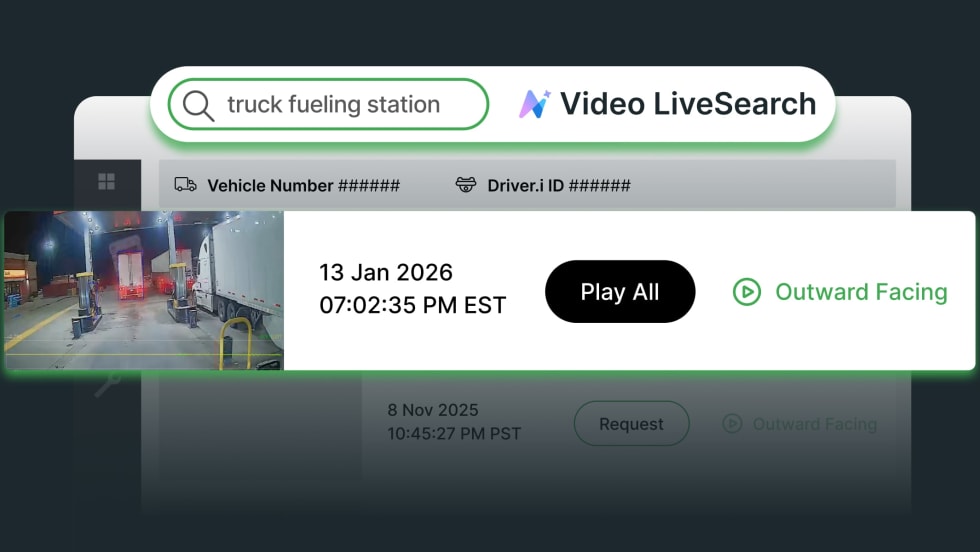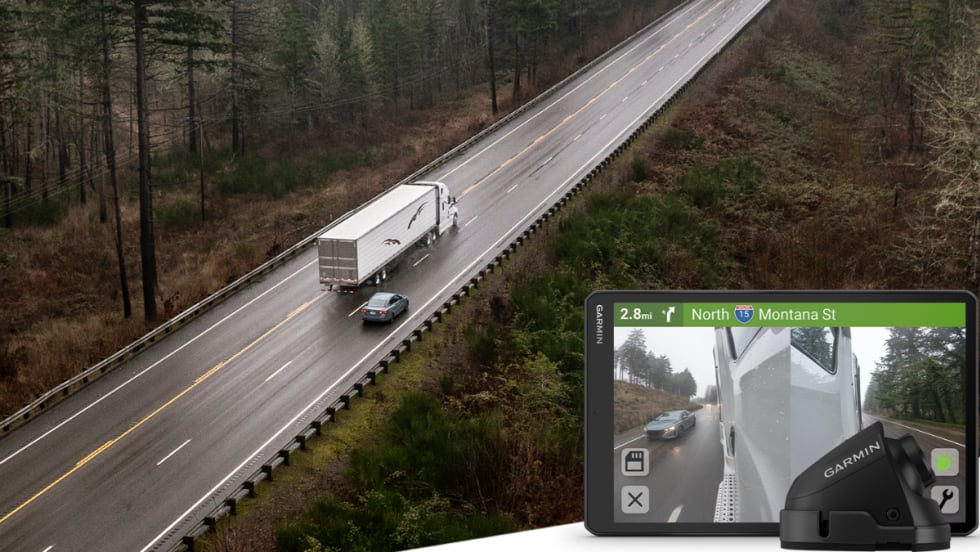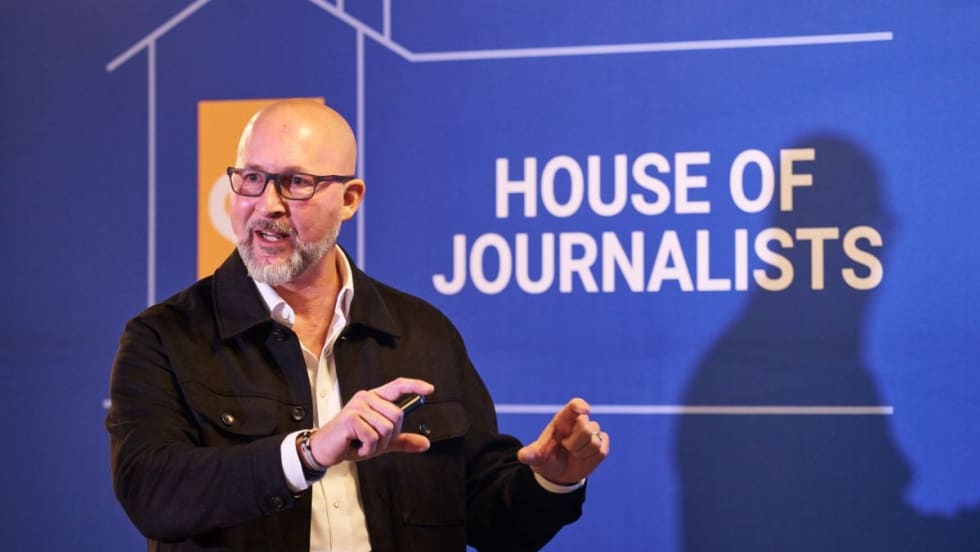Michael Lasko, manager of safety and quality for Boyle Transportation, has been named the winner of HDT’s 2018 Safety and Compliance award at the Fleet Safety Conference in Henderson, Nev. on Oct. 30.
Lasko has been fundamental in helping the Billerica, MA, fleet achieve an enviable safety record, logging a 100% accident-free rate in 2017. In 2016, the company had a miniscule 0.691 accident rate. Boyle uses a multitude of cutting-edge safety systems, combined with good, old fashioned proactive management to achieve these results, including an aggressive drug and alcohol testing program, mandatory new hire training for any format, online safety training sessions, coached driver training sessions behind the wheel, ongoing classroom training, risk scoring, a safe driver rewards program and a zero tolerance policy for cell phone use while driving.
To further enhance fleet safety, all new Boyle tractors are equipped with front crash avoidance systems, lane departure warning, stability control and rollover prevention systems as well as in-cab cameras. The fleet also specs automated transmissions to help keep drivers focused on dynamic driving environments.
“Our company was founded in 1971 by Tom Boyle who had previously served as a Military Policeman in the U.S. Army and then later as a Massachusetts State Police trooper,” Lasko said. “His early experiences with the tragedies of highway crashes drove him to do whatever he could to prevent catastrophic crashes and he instilled a passion for safety into our company. Boyle Transportation has been an early adopter of onboard safety systems. Although these systems have become more prevalent recently, we began deploying them in the late 1990s. We spend about $15,000 extra per truck in safety technology, because we are committed to providing our professional drivers the tools to do their job as safely as possible.”
Moreover, Lasko said, a culture of safety is simply mandatory for Boyle Transportation, since the fleet specializes in transporting sensitive commodities for the U.S. military and life-saving medicine for pharmaceutical and biotechnology companies. “These customers do not look to us to simply haul freight,” he explained. “They need us to apply comprehensive, proactive systems to ensure safe and secure transport of critical cargo. Therefore, we move safety from the “back office” to the forefront in everything we do.”
Lasko says that although many fleet managers today criticize the scoring methodology behind the FMCSA’s CSA program, Boyle’s safety team decided to embrace the concept of safety performance metrics. “When CSA rolled out in 2010, our management team was developing safety-related key performance metrics at the same time,” he said. “As part of our ISO quality management system, our cross functional management team meets weekly to review such metrics. If we see recurring problems or trends, we identify their root causes and implement corrective actions. Such actions could include changes in equipment specification, personal protective equipment, and individual training.”
In addition to external metrics such as SMS scores, Boyle Transportation has implemented a video monitoring system that analyzes driving behaviors and assesses risk. According to Lasko, this system serves two purposes. First, the use of video technology allows Boyle to protect its professional drivers and the company from false claims. Secondly, Lasko and his team can identify coaching and training opportunities and tailor them to fit the needs of the individual. A risk assessment score based on observed driving behaviors, is assigned to all professional drivers and to each site within the company every week.
Professional drivers at Boyle are engaged on the topic of safety via frequent coaching and feedback sessions. Those coaching sessions are documented and follow up performance is used to measure the effectiveness of the coach and the coaching session in a separate metric. The video system connects to all active safety technologies, including radar-based collision avoidance, lane departure warning, roll stability, and side view blind spot cameras. These systems are standard on every Boyle Transportation truck.
“Utilizing that connectivity allows us to understand and aid every professional driver in a holistic fashion rather than a ‘cookie cutter’ response to an incident,” Lasko said. “During the coaching session, the professional driver’s score is reviewed and compared to the company and site average scores. All relevant event videos are then analyzed and discussed with the professional driver and a mutually agreed upon action plan is put in place. In many cases, this tool has empowered our professional drivers to improve safety in a variety of ways and not only for Boyle Transportation. Recently, we were able to work with the manufacturer of our collision avoidance system to address a safety concern with the system that affects every truck on the road with that technology. That was a direct result of our professional drivers’ feedback during coaching sessions.”
Marc Boyle, CEO for Boyle Transportation said, “We’re very proud of Mike and what he’s been able to accomplish here. He’s done a great job supporting our professional drivers and improving our performance along dimensions of safety and quality.”
“Boyle Transportation has a culture of safety that goes back to our founders,” added Ben Curtis, fleet maintenance manager for Boyle. “The systems Mike has employed are state of the art and help our professional drivers perform to the high standards our customers have come to expect. Mike has helped hone our safety standards and goals we strive to achieve. He successfully initiated forward-facing cameras to our fleet and works closely with our professional drivers to identify driving practices that may need improvement. Mike has been a professional driver and knows how to interact and coach without alienating anyone in the process.”




